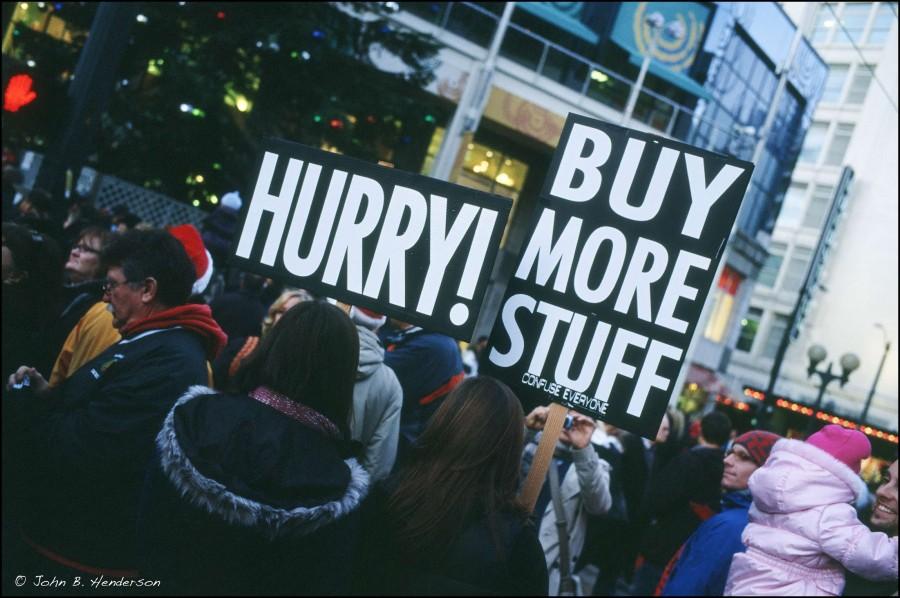Black Friday reveals the worst of human nature and capitalism
I have heard many a tale of the Black Friday experience, mostly from veterans of the dreaded mall gauntlet. First, a twelve-hour freeze outside the building followed by a brutal battle royale for the best items and discounts in the stores. Little do these poor souls know that they just shattered half of the bones in their bodies for absolutely no reason.
Approaching Christmas, there is a both loved, yet dreaded set of unofficial holidays entirely dedicated to shopping. First, the infamous Black Friday, the day after Thanksgiving, which reveals the worst of human nature and capitalism. Second is Cyber Monday four days after, when those without an iron constitution or any sense of self-preservation can get their shopping fix without leaving their home, all online.
With these days of shopping filled with discounts, the holidays would have to be a time of minimal spending, right? They aren’t. They’re only relatively cheap, Black Friday prices are indeed discounted, but only when compared to their price the day before, according to The Washington Post. Look at the price in March, for example, and you would see an identical, if not cheaper tag. Sneaky pricing robbed you while you had your back turned.
Say you buy a TV on Black Friday for 50 percent off. Well, chances are you’re buying it for the same price as in September. It’s only “discounted” because someone knocked the price up 50 percent in early November when nobody was looking. Sneaky pricing strikes again.
But there are other evils at work here. Typical last-minute gifts like jewelry are legitimately cheaper on Black Friday. Nobody buys them, though, because they feel meaningless and stereotypical. Skip ahead to the last minute before-Christmas rush and that same necklace is now three times as expensive. These kinds of gifts often experience a gradual increase in price after Black Friday, reaching a peak just before Christmas before returning to normal. Once again, sneaky pricing has forced you into handing over your money.
Finally, there’s the old bulk marketing plans. By lowering the price, it has been proven time and time again that people will flock over to the cheaper product. But what if you could leave the price where it was, or even better, raise it and still get people to flock over? Meet the “limited edition” trick, designed to get people to buy because the product is now “limited” and therefore “exclusive”, and subsequently “special.” It’s simple psychology that empties your wallet and adds pages to your credit card statement.
So just keep it in mind when you go shopping. If you bought a $100 TV for $70, you did not just regain $30. You spent $70. This Black Friday and holidays, think before you buy and enjoy having at least some money at the end of it all.



jjj • Jan 13, 2016 at 10:07 am
“Say you buy a TV on Black Friday for 50 percent off. Well, chances are you’re buying it for the same price as in September. It’s only “discounted” because someone knocked the price up 50 percent in early November when nobody was looking. Sneaky pricing strikes again.”
this is illegal in the US, if you find it happening take it to small claims court and get the $$$